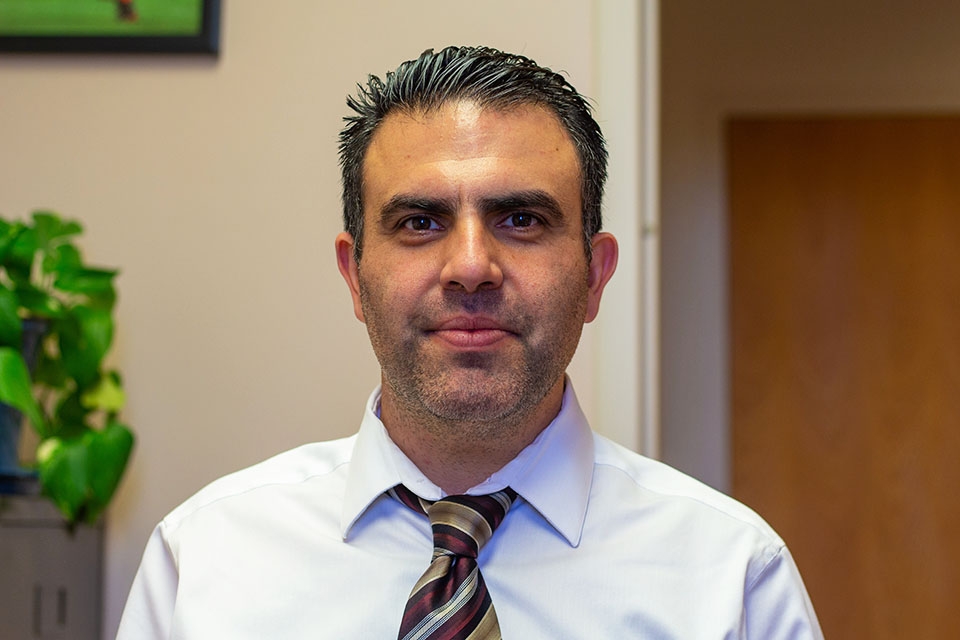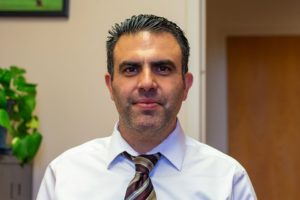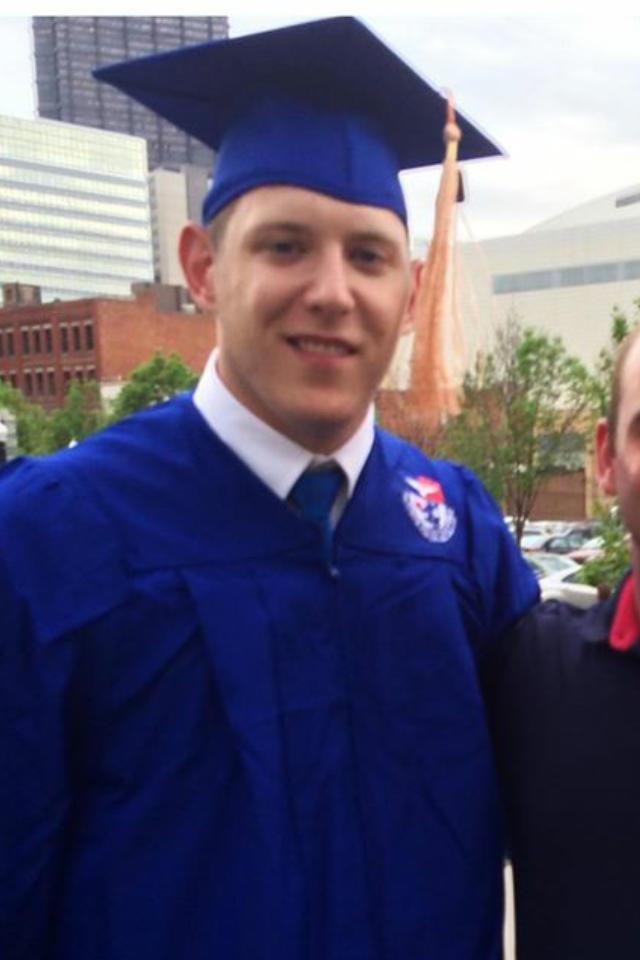
Emad Mirmotahari, a Duquesne professor in the English department, hails from Iran. His personal experiences, in addition to his extensive knowledge on matters of immigration and its challenges, shaped discussion during particular sessions of the series.

Emad Mirmotahari, a Duquesne professor in the English department, hails from Iran. His personal experiences, in addition to his
extensive knowledge on matters of immigration and its challenges, shaped discussion during particular sessions of the series.
Olivia Donia | Staff Writer
11/08/18
In light of recent events both locally and nationally, Duquesne’s Liberal Arts department, in conjunction with the Gumberg Library and the Jewish Community Center of Greater Pittsburgh, held screenings of Becoming American, a film program in six parts focusing on the challenges and impacts of immigration to the U.S.
On Oct. 29, two days after the tragic mass shooting at the Tree of Life synagogue in Squirrel Hill, Melissa Hiller, director of the American Jewish Museum at the Jewish Community Center of Greater Pittsburgh, stood before a crowd in 104 College Hall. The audience, a mix of Duquesne students, faculty and other members of the community, had come for the fourth of six programs on Becoming American, subtitled “Help Wanted? Immigration and Work.” This screening and the two remaining sessions following it would be held in College Hall. Previous sessions were held at the Jewish Community Center, only blocks from the Tree of Life synagogue, which seemed to weigh heavily on both the speakers and the audience.
The program, after all, is an exploration of the immigrant experience in America — all of the different successes, stereotypes and setbacks that have come with it — and was organized by the Gumberg Library and Jewish Community Center, with the assistance of a grant from the National Endowment of the Humanities. The decision to hold the first three installments of the program at the Jewish Community Center in Squirrel Hill was originally made so that the series could be more accessible to the Pittsburgh community at large. Now, it lent to the event’s particular sense of importance.
This fact was not lost on Hiller as she addressed the crowd in College Hall. The evening’s program was given in memory of the 11 victims of the shooting. In her introduction to the program, Hiller called awareness to the way we speak and the impact language can have.
“Have an absolute awareness that language matters,” Hiller said. “You do not have to accept words that don’t seem right to you.”
As the national discussion surrounding immigration becomes increasingly more heated, the Becoming American program feels ever more pertinent. Run by Duquesne professors Jennie Schulze and Emad Mirmotahari of the political science and English departments, respectively, each installment of the series features an hour-long film focusing on a specific aspect of American immigration followed by a presentation given by Schulze or Mirmotahari.
The series handles, among other things, topics such as the history of immigration, prejudices faced by immigrants, issues of identity and acculturation, economics and work, family and community and immigration in popular culture.
“The idea for this program came about, in general, from Duquesne’s historic commitment to social justice and community outreach,” Mirmotahari said. “But it also came about because of the shifts in mood and discourse in this country over the last two years or so, especially where race and immigration are concerned.”
Sara Baron and Terra Merkey were behind the initiative and authored the grant along with Schulze, according to Schulze.
“The importance of this project is not only in disseminating knowledge on a number of topics surrounding immigration, but in generating public discussion and dialogue on those topics, in creating a welcoming space where people can come together and feel comfortable asking questions,” Schulze said.
The Oct. 29 program, which focused on economic reasons for immigration and the restrictions placed upon it, featured a discussion led by Mirmotahari on the language used to discuss immigrants. His presentation particularly highlighted the parallels between the language used to characterize the southern and eastern European immigrants of the early 1900s and contemporary rhetoric surrounding Hispanic and Middle Eastern immigrants.
“There’s a kind of mass amnesia happening right now where immigration is concerned. This amnesia is a cycle that targets newer immigrants. We’ve been experiencing it since before the founding of the country,” Mirmotahari said. “The film series is only a small step in generating insightful discussion about immigration and wrestling that discussion away from the hate, the hysteria and the soundbites that are dominating the news, social media and political gatherings.”
Schulze stressed the importance of discussion surrounding the topic. Her Nov. 5 program, “Family and Community,” invited audience members to participate in discussions of topics such as transnationalism, integration and culture.
“These discussions are important to have both out in the community, as well as at Duquesne,” Schulze said. “While we often have these
discussions inside classrooms, the benefit of this program for Duquesne students is in hearing the voices of the larger community. The exposure to a broader diversity of narratives and perspectives provides an opportunity for a richer learning experience.”
Schulze also made a point to mention how the Becoming American series introduces the “human face” of immigration to audiences who might otherwise not have much contact with immigrants. She hopes that this program will cause students and community members to confront the realities of immigration along with their own perspectives of it, and she wishes the series will help foster valuable discussion among friends, families and communities.
“There are many ‘myths’ surrounding immigration,” Schulze said, “that are perpetuated and need to be addressed through meaningful dialogue and discussion … The hope of the project is that these Monday evening discussions are just a starting point and that people who attend them will continue those discussions within their own social circles.”
For Mirmotahari, the project is especially important because of America’s long and complicated history with immigration.
“It’s important to see these films because they are a reminder that everybody who lives in this country has some sort of relationship to immigration and the immigrant experience — if not themselves personally, then in their family histories,” Mirmotahari said.
The series ultimately serves as a forum to discuss what is a very hot button issue in a thoughtful and respectful manner. The goal of the series is, ultimately, to try and foster an educated and understanding environment in the Duquesne community and Pittsburgh as a whole.
“This project is also about building community, discussing immigration issues with our neighbors, having people share their own stories and connect those stories to the larger ‘Becoming Americans’ project, connecting immigration challenges in Pittsburgh to the broader challenges we discuss in this series and brainstorming solutions together,” Schulze said.
The final installment in the Becoming American series is titled Immigration and Popular Culture with Mirmotahari. It will be shown on Nov. 12 at 6:30 p.m. in College Hall 104.




